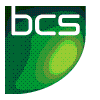| BCS announces award winners |
| Written by Sue Gee |
| Wednesday, 15 June 2011 |
|
Hermann Hauser has been awarded this year's Lovelace Medal and the Roger Needham Award goes to Professor Maja Pantic.
The BCS Lovelace Medal was established in 1998 in honour of Lady Augusta Ada Byron, Countess of Lovelace and daughter of Lord Byron and is presented annually to individuals who have made a significant contribution to the advancement of Information Systems. This year it has been awarded to Hermann Hauser, co-founder of Acorn Computers and one of innovators who developed the BBC Micro Computer that popularized home computing in the UK. Widely known as an entrepreneur and primarily associated with Silicon Fen, Hauser has founded and invested in over 25 technology companies in the UK and US including ARM, E*Trade UK, Cambridge Display Technology and Virata. He is currently funding a new building at Cambridge University, the Hauser Forum, which will accommodate the Cambridge Entrepreneurship Centre and will be 'a stepping stone between Cambridge research and business'.
The Roger Needham award is sponsored by Microsoft Research Cambridge and established in memory of Microsoft's first director of research outside the US. It is awarded for a distinguished research contribution in computer science by a UK based researcher within ten years of their PhD. Maja Pantic is head of iBUG (Intelligent Behaviour Understanding Group) at Imperial College, London and has done pioneering work in the machine analysis of human behaviour and has addressed some of the critical research challenges in this area. According to the BSC announcement: Professor Pantic's work transformed the state of the art in automatic facial behaviour. Her work on feature-based approaches to facial expression recognition improved several aspects of facial expression recognition from video, including the accuracy and robustness of facial feature detection and tracking, the accuracy of facial muscle action (AU) detection, and was the first to report on automatic recognition of temporal phases of facial actions. [She] is also a pioneer in research on multimodal behaviour analysis including vocal outbursts analysis (e.g., laughter), continuous affect analysis (e.g. in terms of valance and arousal), and social signal processing. Her works on these topics are currently standard references in the field of machine analysis of human behaviour. More information about her research can be found at http://ibug.doc.ic.ac.uk/home.
|
| Last Updated ( Wednesday, 15 June 2011 ) |

